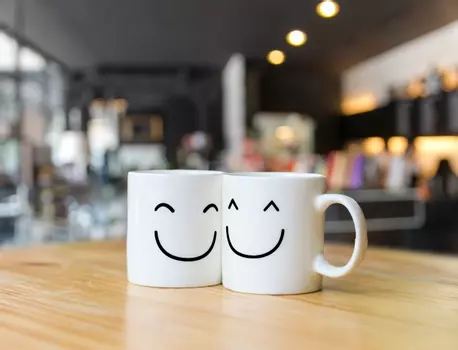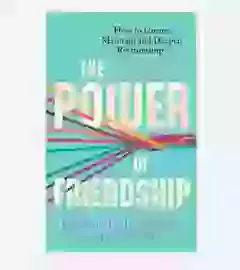Celebrating World Friendship Day
In honour of World Friendship Day, we’re spotlighting The Power of Friendship. In this extract, authors Frida Bern MSc, Daniel Ek MSc and Pär Flodin PhD explore how friendships can enrich our lives so that we’re not only happier but healthier too.
The importance of friends
Many of us take for granted that friends are important and good. When we asked around in our communities about why, we received many different answers:
- Friends provide a sense of meaning and context.
- A close friend can listen and support you.
- With close friends you can be yourself and don’t need to perform.
- Friends can help you move to a new flat, babysit and other practical stuff.
- You can have fun with friends – just laugh, goof around and let loose.
- A network of friends can help you with contacts that open up new opportunities.
- Friends broaden your horizons, give you new perspectives and break up your regular thought patterns.
- Life is less predictable with friends.
- Close friends can give you honest answers and see through your bullshit.
- You feel less lonely with friends.
One might say there is no need for scientific evidence to prove that friends both facilitate and enrich our lives. But as a matter of fact, there is an abundance of studies that both confirm our intuition, and go further. It’s clear that friends are more than just good, friends are vital!
Do friends make us happier?
Daniel Kahneman, psychologist and author of Thinking, Fast and Slow, held a study in 2004 to ask what makes us the happiest in our daily lives? The majority of the almost one thousand working women who participated in the study were happiest while spending time with their near and dear ones. To expand this study, psychology researcher Mihaly Csikszentmihalyi let the participants of his study report their experiences in real time. The results were published in 2003 and, hardly surprisingly, the authors reported a similar conclusion as Kahneman – socialising with friends was by far the strongest variable for happiness.
That we are happy while spending time with friends may sound obvious, but what roles do friends and friendships play when it comes to our long-term wellbeing? One way to approach this question is to investigate how the happiest people live their lives. In the study ‘Very happy people’ from 2002, Martin Seligman, a foreground figure in the research field of positive psychology, interviewed two hundred students and found that what distinguished the happiest ones was that they had particularly satisfactory relationships. They also spent more time with other people in general.
Do friends make us healthier?
In the comprehensive ‘Harvard study of adult development’, researchers have followed hundreds of men in the Boston area since the 1930s. The study is still ongoing and is one of the longest conducted studies ever performed. From all the collected data (brain scans, blood samples, questionnaires, and interviews with the men and those close to them), the researchers have been able to conclude that close relationships seem to affect our physical wellbeing more than wealth, levels of cholesterol, work or social status.
The Canadian author and psychologist Susan Pinker has, in her book The Village Effect, summarised research about what causes residents in some regions to live much longer than residents in similar neighbouring regions. She reports that what matters is both the number of people that you interact with and how close your relationships with them are. Pinker states that the more confiding relationships people have, and the more people they interact with in everyday life, the higher the probability that they will live a long life.
Friendship is like a string of pearls of connection
Every now and then, a feeling of a deeper connection can spark between people, for example when you and the person sitting next to you on the bus both smile at the cute child in the seat in front of you. Or when a kind stranger helps you with your heavy suitcase and you stop for a second to make eye contact. It can also occur in moments shared with people you are close to, like when you are completely present with a child, or when your partner holds your hand.
When we establish this kind of connection it can feel as if we are ‘vibrating’ together. Sometimes we say that ‘we click’, or, if we spend more time together, that we ‘have chemistry’. According to Barbara Fredrickson, professor of psychology at the University of North Carolina, these words seem to describe what actually happens in such meetings. Her research has shown that three things occur: we share positive emotions, we feel that we want what’s best for one another, and we synchronise our behaviours and our bodies.
Even though what we have described above can be seen as important ingredients, friendships obviously include more than just fragments of random moments of deeper connection. Just because you have ‘clicked’ one time with a person at an event, doesn’t mean that you have become friends (even if there is potential). Friendship is developed over time and needs some kind of continuity. With our friends, we collect mutual experiences and memories. We can have internal jokes and jargon that is completely incomprehensible to others. Or close friends have often learned what we need to hear when we’re sad and what we don’t need to hear when we’re pouting and moping. Something makes us want to see each other time and time again, and when we get together we don’t start over from scratch each time, because we know somewhat where we stand. Friendship can therefore be compared to a string of pearls. The pearls are the moments of connection and the string is the experience of a lasting relationship.




